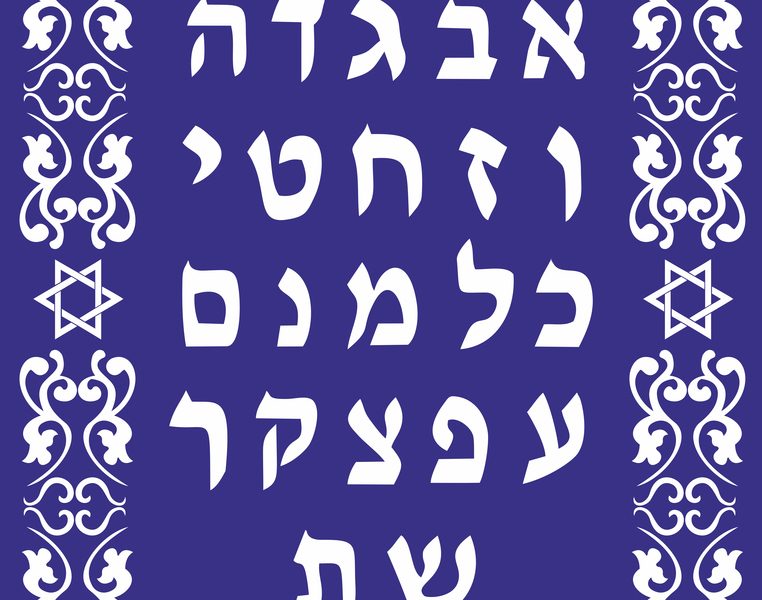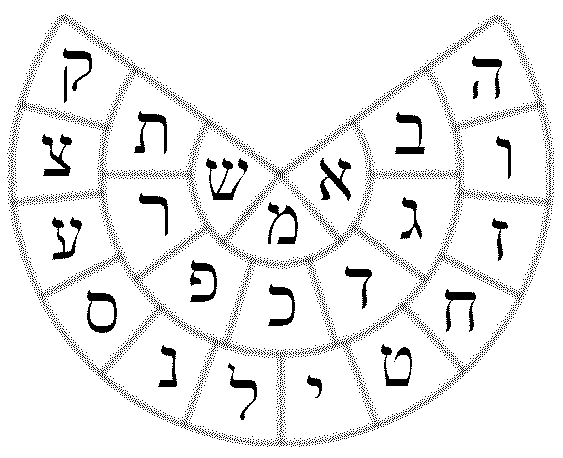
1290 AD to 1310 AD, Psalm 112: Kabbalah
This site was first built in French (see www.147thgeneration.net). The English translation was mainly done using « google translation ». We have tried to correct the result of this translation to avoid interpretation errors. However, it is likely that there are unsatisfactory translations, do not hesitate to communicate them to us for correction.
(for that click on this paragraph)
This generation of the 1290s and 1300s.
According to our count, this generation is the 112nd generation associated with Psalm 112. It is in this Psalm 112 that we therefore find an illustration of the facts of this generation.
With this generation disappear the last islands of Christian domination in the East, the last strongholds fall. Saint John of Acre, the last Crusader rampart in the Holy Land, fell into the hands of the Mamluks in 1191. Tortosa, Beirut, Tire and Saïda also fell easily. After two centuries of presence in the East, the results of the Christian presence in the East are rather gloomy. Almost no intellectual or artistic enrichment, either East-West or West-East has been generated.
At the same time as the East definitely strengthens its Muslim identity, the West in turn strengthens its Christian identity. Until the Spanish reconquest brings down Granada (the last Muslim enclave) in nearly two centuries, the new Christian kingdoms are increasingly taking action against non-Christian religious minorities.
In addition to the repeated accusations of ritual crime, there is the desecration of the host. The Jews will be the ideal culprits in the accusation of this new crime. This will become recurrent in Christian Europe. In fact, these accusations serve as a demonstration of the credo of the new mysticism of Latin Christianity whose bases, transubstantiation, were stated a few decades earlier at the Lateran Council.
If Christian mysticism has dramatic consequences, in this generation Jewish mysticism flourishes in a much less dangerous way.
This generation is indeed associated with the rise of Cabal dissemination as an extension of the emergence of the Zohar to the previous generation. The preliminaries of the Zohar are the part that initializes this book before the explanations of the first verses of Genesis, first verses of the Torah. They place great emphasis on the role of the letters of the Hebrew alphabet. The psalm of this generation is not left out by giving pride of place to the Hebrew alphabet.
So if the Jewish people still seem in this generation to find themselves in the heart of darkness, Jewish mysticism, cabal and the Zohar, is perhaps the light which allows the Jewish people to survive, despite everything, in a hostile Christian world.
Talk
The end of the Christian dream in the East
This generation sees the end of the last islands of Christian domination in the East, the last strongholds fall. Saint John of Acre, the last Crusader wall in the Holy Land falls to the Mamelukes in 1191. Tortosa, Beirut, Tire and Saïda also fall easily.
After two centuries of presence in the East, the record of the Christian presence in the East is rather bleak. Virtually no intellectual or artistic enrichment, whether in the East-West or the West-East direction, has been generated.
Similarly, from Byzantium, there are only a few enclaves that resist as they can to the Turkish pressure. Constantinople will fall later at the same time as Granada falls into the hands of Christians.
At the same time as the East definitely strengthens its Muslim identity, the West in turn strengthens its Christian identity.
While waiting for the Spanish reconquest to bring down in nearly two centuries Granada, the last Muslim enclave, the new Christian kingdoms take more and more measures against non-Christian religious minorities.
Thus the fate of the Jews in Europe is gradually deteriorating, the sixth millennium (according to the computation of the Hebrew calendar), that of the triumphant Christianity is really not a good omen for the Jews. If Christians are forced to abandon the East, the West is marked more and more deeply by the cross.
Transubstantiation




To the repetitive accusations of ritual crime is added the profanation of the host.
If this accusation is not new – a first case is recorded in Cologne in 1150 – this time the accusation turns into a theological demonstration.
So from the start of this generation, in Paris, such a case appeared:
- In 1290[4], a Paris Jew named Jonathas was accused of having pierced and tormented a host. His crime having been miraculously discovered, Jonathas and his wife were put to the question, and ended up confessing everything they wanted. They were burned in Place de Grève, and their house destroyed. On its ruins was built a chapel intended to commemorate the miracle of Billettes. It fulfills its function until the twentieth century!
If the Jews are paying the price for the accusation of a new type of crime, which will become recurrent in Christian Europe, it is to serve as a demonstration of the credo of the new mysticism of Latin Christianity whose bases, the transubstantiation, have been stated a few decades earlier at the Lateran Council:
- The question[5] of the form of the sacrament has become a priority question in Latin Europe. The progressive development from the text of Ratramne (836) to Lateran IV (dogma of transubstantiation) and to the synthesis of Saint Thomas (treatise on the sacraments, Summa, third part, around 1270) makes the Eucharistic theory an object properly Latin theological. The last elaboration of the notion of “mystical body”, the object of a series of demonstrations on its reality and on the reality of the participation of the body of Christ in communion, it has become the sensitive body of Christendom and the guarantor of mysticism of the church and the Latin empires. […]
- The legends (or legend) spread at the end of the 13th century find their form in illustration of the dogma of the real presence. They are the only demonstration. It is therefore important that the fable be credited with reality, that is to say a real structure of news.
- These legends are Latin: they concern the theory of the sacrament developed by the Christian Church.
Philip le Bel (the Fair)
The Billettes affair in Paris in 1290 also served Philippe le Bel as an additional argument for the expulsion of the Jews in 1306:
- It seems to us [6] possible to advance that the reign of Philippe IV (Philippe Le Bel, 1285-1314) inaugurates a new era in the history of political behavior, marked by the weight of public opinion, by the influence of the sacred and secular word and by the deployment of a propaganda with multiple faces. Is it necessary (the author also quotes this action against the Templars and the Pope) to legitimize the expulsion of the Jews in 1306, one develops justifying myths, promised to a great fortune thereafter. We spread the story of the child in the oven […], we relate the miracle of the bleeding host […]. These legends, traces of which can be found in contemporary university disputes, served as a pretext for the plunder of flourishing Jewish communities, settled in Champagne, in the Loire Valley and in the South. In July 1306, bailiffs and seneschals arrested all Jews, before seizing their property and trade books, throughout France.
This expulsion [1] was preceded in 1305/1306 by a depreciation of the currency of two-thirds, which mechanically multiplied the claims by three. It is legitimate to think that by expelling the Jews in 1306 main debt holders, Philip Le Bel drew a double financial advantage: he thus lightened the debts of his citizens and reduced the negative effect of his monetary reforms and also recovered from the seizure of Jewish property substantial amounts (but much lower than its forecasts) allowing him to partially restore the budget balance. Although using theological arguments to achieve its ends, the expulsion of the Jews has only a material purpose. Moreover, the Jews will soon be allowed to return, but the infernal mechanism is engaged.
The Billettes affair was replicated in Germany with far greater loss of life for Jewish communities.
The Zohar and the Alphabet
This generation is the one that sees the rise of dissemination of Kabbalah in the wake of the emergence of the Zohar to the previous generation. The preliminaries of the Zohar, the part that initializes this book before the explanations of the first verses of Genesis, the first verses of the Torah, gives a large place to the role of the letters of the Hebrew alphabet relying nevertheless on the first verse of it.
All the letters succeed each other to justify that the creation of the world must be based on it, of the letter Tav (T), all were refused until the letter beit appears, it is then accepted, the Aleph s refraining from introducing himself. It is in compensation for this « modesty » that this letter became the first of the alphabet:
- The Holy One [2], blessed be He, said to him: Aleph, Aleph, in spite of the fact that I will create the world with the letter beit (which initiates the Torah), you will be the first letter of all the letters of the alphabet, I will have unity only in you, and you will also be the beginning of all the calculations and works of the world. Any unification will rest in the letter aleph alone.
So if this psalm as the psalm that precedes it and the one that succeeds it, all associated with the diffusion of the Zohar is initialized by the same word: « Hallelujah », it is the succession of a series of verses which respects a rule well special. Every (half) verse indeed begins with a different letter of the alphabet in the order of the alphabet. Thus, as promised in the Zohar, the first verse begins with the letter aleph (A) and the last with the letter Tav (T).
Italy plays an important role in awakening Europe to Chinese contributions following Marco Polo’s travels and later in activating the Renaissance. It also becomes a center for the dissemination of the Cabal and the Zohar.
So if the psalmist can not deny that again, the Jewish people in this generation is the heart of darkness, he does not fail to evoke the yearning Jewish mysticism, the Kabbalah and the Zohar often compared to light that allows the Jewish people to survive in a hostile Christian world in the hope of an immediate but future retribution.
This is summarized in the beginning of the psalm of this generation;

- Hallelujah. Praiseworthy is the man who fears the Lord, who greatly desires His commandments.
- His seed will be mighty in the land, a generation of upright ones, which shall be blessed.
- Wealth and riches will be in his house, and his righteousness endures forever.
- He shone a light in the darkness for the upright, [for He is] gracious and merciful and righteous.
Recall that Zohar means « bright light ». Thus the « light« brought by Jewish mysticism to the Jewish people in the acceptance of evil is very necessary, because if the Jews had become accustomed to the « night », they approach the most profound period which justifies the term well. of « darkness » used by the psalmist.

The Jews could hope that the massacres of the first crusade in 1096 were an accident of history, an exceptional event. This is not the case, it happens again for the present generation and will be repeated in Europe until culminating in the Twentieth Century Shoah. These massacres made of Europe, which for many Jews could look like a second promised land, a « valley of tears » as had been announced in Psalm 84 whose generation saw the opening of trade routes to is and the establishment of many Jewish communities on these in Germany.
The continuation of the psalm reiterates the faith of the Jewish people despite the misfortunes that accumulate on it, confirming the same confidence expressed earlier in Psalm 84:

- Good is the man who is gracious and lends, who conducts his affairs with moderation.
- For he will never falter; for an everlasting memorial will the righteous man be.
- He will not fear bad news; his heart is steadfast, trusting in the Lord.
Despite the harshness of the blows, the Jewish people cross generations to the dismay of his enemies who can only see the failure of their long-term action.
It is on this conclusion that the psalmist prefers to conclude this dark generation for the Jewish people:

- His heart is steadfast, he will not fear until he sees in his adversaries.
- He distributed, he gave to the needy; his charity endures forever, his horn will be raised with glory.
- A wicked man will see and become angry; he will gnash his teeth and melt; the desire of the wicked will be lost.
In particular, the last verse begins with the letter Tav, whose God, according to the Zohar, refused to create the world because:
- You [3] (the letter Tav) are the seal of death (mavet).
Thus this psalm, when it concludes that the « the desire of the wicked will be lost. » indicates that all the massacres that may be perpetrated by the enemies of Israel will not prevent the good of finally triumphed.

[1] From: (collective): « The Capetians, History and dictionary, 987-1328). Chapter: « The reign of Philip IV Le Bel ». (French: « Les Capétiens, Histoire et dictionnaire, 987-1328). Chapitre : « Le règne de Philippe IV le Bel ».
[2] Based on the French version of The Zohar: The Zohar, Volume I, Preliminaries. (French: (Edition VERDIER, « Les Dix Paroles »). Le Zohar, Tome I, Préliminaires. (p. 40) )
[3] Based on the French version of The Zohar: The Zohar, Volume I, Preliminaries. (French: (Edition VERDIER, « Les Dix Paroles »). Le Zohar, Tome I, Préliminaires. (p. 36) )
[4] Simon Schwarzfuchs : « Les Juifs de France ». Chapitre : « Le treizième siècle ». (p. 88)
[5] Jean Louis Schefer : « L’hostie profanée : histoire d’une fiction théologique ». Chapitre : « La forme du pain ». (p. 130-131)
[6] (collectif) : « Les Capétiens, Histoire et dictionnaire, 987-1328). Chapitre : « Le règne de Philippe IV le Bel ». (p. 425)

